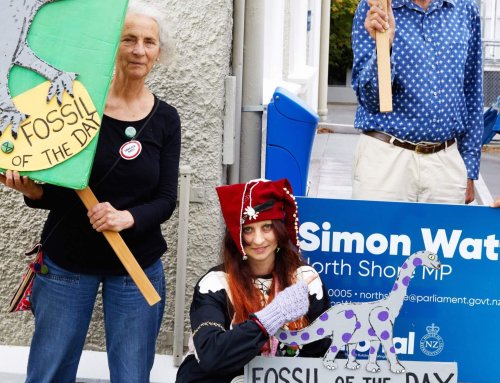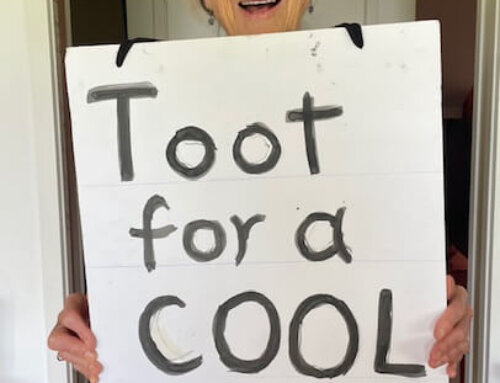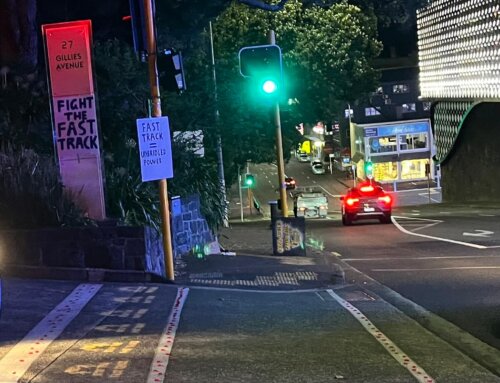 On Tuesday, Alastair Reith wrote in The Spinoff of his concerns about Extinction Rebellion’s tactics [in “Patronising political spectacles are no substitute for real people power”]. He argued the group’s actions on Monday would discourage New Zealanders from joining the fight for climate justice. This article challenges several of Reith’s arguments. For a full exposition of Extinction Rebellion’s demands and tactics, read Dr Sea Rotmann’s justification here.
On Tuesday, Alastair Reith wrote in The Spinoff of his concerns about Extinction Rebellion’s tactics [in “Patronising political spectacles are no substitute for real people power”]. He argued the group’s actions on Monday would discourage New Zealanders from joining the fight for climate justice. This article challenges several of Reith’s arguments. For a full exposition of Extinction Rebellion’s demands and tactics, read Dr Sea Rotmann’s justification here.
Firstly, full disclosure: I recently joined Extinction Rebellion Waitakere, the group’s newest branch based in West Auckland. I also joined the day of rebellion in Wellington. I share Reith’s deep concern for the fate of our planet. I approach the issue, as I assume he does, with honesty, grief, fear and love.
Reith is worried that our actions could impact the growing momentum around climate justice. He says public disruption could alienate supporters of increased climate action. Reith ignores the role Extinction Rebellion has played in building this momentum around the world. This doesn’t deny the crucial role School Strike 4 Climate has played. Our two groups are strongly aligned, and together we’ve built a productive symbiosis.
This relationship is the site of the second misconception in Reith’s article. He creates a false dichotomy between XR and SS4C. He implies we designed our direct action as a substitute for the school striker’s incredible mobilisation. In Tāmaki Makarau Auckland, we gave practical and critical support to the strike. Rebels from other cities who participated in Monday’s actions gave similar support to other strikes. To us, this is a case of both ‘that’ and ‘this’, not either/or. Reith’s argument ignores the reality on the ground.
Extinction Rebellion is conscious of the potential impacts of disruptive action on the public. Are we sure that, on balance, we are winning over more people than we are pissing off? Not yet. Do we have a way of knowing? Not yet. Reith implies we should wait until we are sure of the success of our tactics. Martin Luther King Jr.’s maxim in his Letter From a Birmingham Jail says “this ‘wait’ has almost always meant ‘never'”. Moreover, speculating on an action’s likelihood of success distracts us from our ability to act in the current moment. We rebel against business as usual because it is the appropriate response in this time of radical uncertainty and loss.
The most concerning aspect of Reith’s article is his analogy about the Students for a Democratic Society morphing into the violent Weather Underground group. SS4C is not morphing into Extinction Rebellion, just as the NAACP did not morph into the Black Panthers. From the start, Extinction Rebellion has had clear demands, principles, tactics and a non-violent approach. We work with other groups in the climate justice movement that use different tactics. Reith’s example describes an organisation using violent tactics that every member of Extinction Rebellion vows to reject. Despite his attempts to highlight that our group isn’t violent, he nonetheless tars us with a violent brush.
Reith suggests the capitalist political economy has a strong record of co-opting action by a motivated minority. This is true. It is also true of broader social movements. Perhaps the best indication of which of the two is more readily co-opted is our Prime Minister’s respective reactions to the SS4C strike on September 27 (wholly positive) and the Extinction Rebellion action on Monday (wholly negative). The Ardern government’s proposed Zero Carbon Bill is entirely insufficient for reforming our society to the extent that the IPCC says is needed to avoid dangerous climate change. Her reaction is, of course, no surprise given that Extinction Rebellion represents such a profound challenge to the business as usual model that her government promotes. Ardern’s championing of Greta Thunberg’s electrifying speech at the United Nations suggests she either ignores or does not understand Thunberg’s challenge. When Thunberg admonishes leaders for their “fairytales of eternal economic growth”, she is speaking not to the Trumps but to the Arderns.
It is this radical challenge at the heart of youth climate strikers’ message that Prime Minister Ardern and her ilk are already in the process of sanitising. Perhaps this sanitation has increased the movement’s participation and support. Reith suggests Extinction Rebellion’s minor inconveniences will repel those otherwise flocking to the climate action movement. If this is true, then maybe there has not been an honest communication of the disruption that will accompany both meaningful climate action or (to a much greater extent) business as usual. Extinction Rebellion’s insistence that governments tell the truth about the climate and ecological crises requires that we as rebels behave in a manner consistent with this truth. If ringing the fire alarm hurts your ears then we apologise, but it is the right thing to do.
Will we succeed in avoiding ecological and civilizational catastrophe? The odds do not look good. However, the odds for collapse are certain if we do not radically shift from business as usual and gradualist attempts at reform. We have had thirty years of something approximating full knowledge of the climate crisis, and thirty corresponding years of evidence that our governments in anything like their current form are incapable of fulfilling their duty to rule in the interests of the people. Yes we are unsure, yes we are afraid, yes we are prepared to take great risks for the planet we love so much. This is why we rebel.
Matt Ross is a father of two young boys and a secondary school teacher who lives in West Auckland. None of the opinions expressed are truly his own. Beyond those mentioned in-text, conscious references have been made to the thought of Joanna Macy, James Baldwin, Roger Hallam and Jem Bendell.




